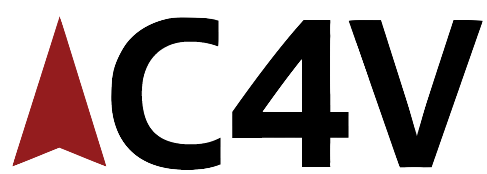But what problems can applied ethics solve?

In late 2011, just six months into my service as a Senior Advisor to USAID (political appointee under the Obama administration), I managed to convene a gathering of eleven of USAID’s top strategic planners and senior analysts in one room. I posed a single question to them: “Would it not be advantageous to include the robust analytical tools and approaches of applied ethics to improve the policies, programming, and evaluation work of USAID?”
The response was memorable for its uniformity – eleven blank faces. Finally, one person asserted that they needed nothing more than political economy analysis (PEA) to accomplish their objectives, and besides – ethics was so arbitrary and relative. The other ten people nodded their concurrence with their colleague. I attempted a modest rearguard effort to argue for the value-added of applied ethics, and that ethics done well was anything but arbitrary or relative, but I did not gain any traction that day.
Twelve years later, the situation remains largely unchanged both at USAID and in international relief and development more broadly. Even reinforced by the platform of the Center for Values in International Development, which is the first and only such organization of applied ethicists based in North America working in humanitarian response and international development, the discernible impacts of our past three years of efforts remain negligible. That’s not entirely a surprise; as a very small start-up organization our effort to position applied ethics thinking and analytical tools such that achieving moral clarity becomes a central discipline within humanitarian response and international development has always been immodestly bold. We’ve yet to change many minds or influence any major policies or processes. There is still little traction…our critics are quick to ask us what problems within humanitarian response and international development would be solved by involving applied ethics?
Humanitarian response and international development operations, policies, practices, and advocacy all exist within an international relations context beset with profoundly complex, systemic challenges at global and national levels. Applied ethics offers a way to identify probable moral motivations, to map values and their influence, and to guide us in our evaluation of both the means and the ends of the political and economic policies that shape our world. Well established organizations such as the Carnegie Council for Ethics in International Affairs offer a wide range of powerfully persuasive values-based insights within international relations, but no similar entity exists at the level of humanitarian response and international development practice. The Center for Values in International Development is still in its infancy, but our goal is to move in that direction.
International relations and international development practice obviously overlap. To a considerable extent, global systems derived from international relations establish – and constrain – the enabling environment in which relief and development practitioners tackle the massive and complex challenges of patriarchy, environmental exploitation, corruption and poor governance, grossly inequitable standards of global trade and commerce, the uneven global distribution of essential pandemic-fighting vaccines, and the rapidly expanding debt burdens in the Global South, among so many additional macro-level concerns.
Moving down the ladder to more local relief and development practice, we begin with the realization that the amount of funding is and always has been seriously inadequate to address very clear problems of poverty and suffering. We have largely come to accept that intense poverty will always coexist alongside ever-higher levels of individual and national wealth. We feel powerless to overcome the preventable losses of lives due to malnutrition and to conflict-related insecurities, or the suffering and the losses of opportunities related to poor access to basic goods (housing, health care, employment, education, etc.). All of these aspects of the status quo raise profound moral questions within humanitarian response and international development, but still at a scale that most practitioners feel is well beyond their influence.
That may be the case, but that doesn’t explain the lack of a robust discourse between and among practitioners regarding what values and attitudes do need to change for the status quo to be transformed. Our institutions of relief and development do not encourage or make space for that discourse to occur. Perhaps it is just as well; for many people neither their impoverished moral vocabulary nor their currently limited ethical discernment skills give them the confidence to rise to that challenge. Still, practitioners can be trained in these moral skills, if there is a will to do so.
So…the question remains. Within the manageable realities faced daily by practitioners in humanitarian response and international development, what problems can applied ethics help to solve?
Consider these examples, for a start:
- Corruption
USAID has elevated the countering of transnational corruption to become one of its Grand Challenges, and the Office of the USAID Inspector General has cited corruption as a Top Management Challenge in development. USAID has also established an Anti-Corruption Task Force. While finding and implementing effective ways to prevent, constrain, detect, report, and punish corruption are essential, they remain insufficient. If asked, applied ethicists would argue that the other side of the corruption coin is integrity, yet integrity as a positive concept is rarely cited by USAID in this context. Were we to use the tools of applied ethics to build out a better concept of government integrity, and use that to find, recognize, and celebrate people who are exemplars of public service and integrity, we would accomplish two important things that are now largely ignored. First, we would make visible the large number of people who are already doing their jobs in a trustworthy, responsible, professional, and ethical way. Second, by making their integrity a point of public acclaim and respect, we would strongly encourage that behavior more widely. Ultimately, we would avoid the corrosively cynical conclusion that our current anti-corruption trajectory is pushing us toward, i.e., that all human beings by their very nature will be corrupt up to just before the point where the risk of detection and punishment is arrived at.
- Localization and diversity
USAID Administrator Samantha Power, in an important speech on her New Vision for Global Development that she delivered at Georgetown University in late 2021, cited three ways in which she wants USAID to become more responsive. First, she emphasized the need to expand diversity among those who participate in the work of USAID. Second, she called for raising the voices of those who are most marginalized, and hearing from them what their needs are. Finally, she challenged USAID “…to listen to what our partners in the countries where we work are asking of us”. Since that speech, USAID senior staff have made intense efforts to realize these localization and diversity goals, yet progress has been less than ideal. The reality that localization entails giving legitimate local decision-makers in the Global South more direct agency and freedom in how USAID relief and development funds are spent and accounted for has led to a concentration on the management of the money. While obviously important, and of strong political interest to USAID’s masters in Congress and to American taxpayers, the deeper importance of what moral agency and ethical accountability dimensions of localization mean to committed development actors within the Global South has barely surfaced. Equally important, the reality that localization will necessarily involve unavoidable conflicts between cherished American values and local cultural and religious values has been ignored. Applied ethics has such important work to do to guide USAID in how best to engage in deliberative and structured processes to overcome such value conflicts, while remaining committed to the ethical and pragmatic principles of localization. In the interim, USAID Missions in the many Global South countries that insist on oppressing and even criminalizing their own citizens who come from certain marginalized groups, e.g., religious minorities, LGBTQI+ persons, or lower caste persons, will be left with the impossible task of representing American values of universal human dignity and human rights in countries that intentionally exclude certain of their own citizens from the recognition and respect that their dignity requires.
As for diversity, here too, much work remains ahead. For example, I remain the one and only openly transgender political appointee to ever have served at either USAID or the State Department. There has not been a single new transgender political appointee in either institution since I left. An opportunity to refresh the symbolism and strong message of inclusion and diversity that started with my appointment in 2011 has been ignored. Applied ethicists, were there any on the staff of USAID or State, would almost certainly be advocating to fill that gap with a new appointee from qualified transgender candidates as soon as possible.
There are innumerable other examples of ways in which applied ethics can assist in solving even the most daunting problems faced within humanitarian response and international development, ranging from improving staff morale to advising on the onerous trade-offs that must be made in the provision of public health services, to balancing the needs for being responsive to national development plans in the Global South while pushing back against the increasing closure of civil society space in many such countries.
Problem-solving ranks as an obvious and pragmatic high priority, but applied ethics also serves another critically important need – it helps to drive development forward. Motivated, inspired, and energized people are great problem solvers!
Photo credit: shapecharge


